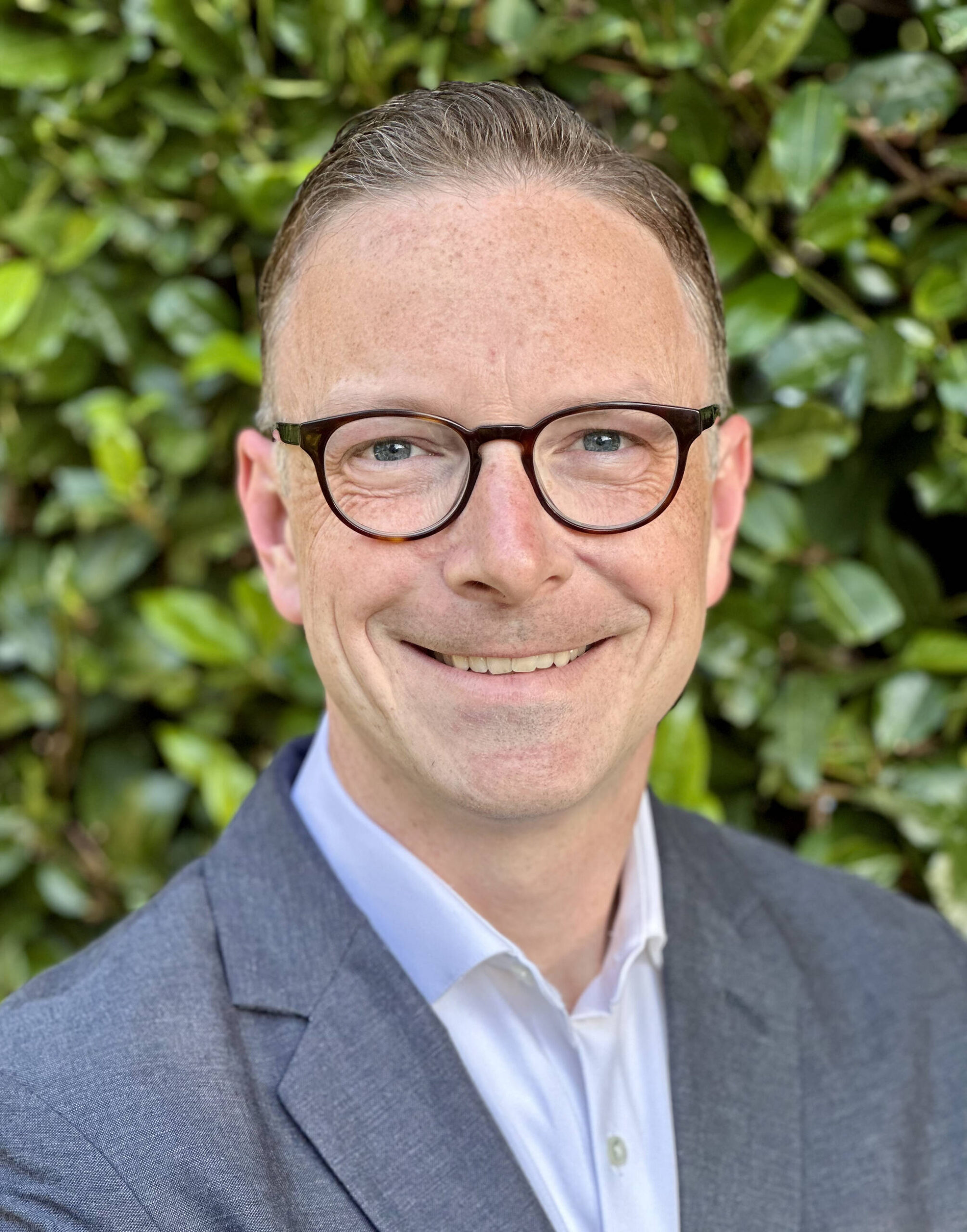A proponent for community safety and outreach faces a candidate with fiscal management expertise in the race for Position 3 on the Langley City Council.
Political newcomers Kay Kenneweg and Chris Carlson are both vying for the seat, which will soon be vacated by Thomas Gill, who is seeking election as Langley’s mayor.
An involved community member, Kenneweg is taking her second stab at running for city council. She previously ran for election in 2021 against Harolynne Bobis, who won the seat.
Kenneweg can often be found walking around the streets of Langley and offering information about the different resources the city offers to people in need. With a background in public health outreach and education, she helps care for some of Whidbey’s most vulnerable residents. She said she is running for the council seat in order to represent a diverse perspective – her own.
“You need different voices on the council because people think differently,” she said. “Then it’s representative of the people of Langley, not just one specific segment – homeowners who make more than $100,000 a year.”
Carlson has been active as the chairperson for the city’s Civil Service Commission and the Finance and Personnel Legislative Commission, the latter of which began meeting in 2022 as concerns grew about Langley’s financial status.
“The current council and staff are strong in different ways, but unfortunately fiscal management is not one of them,” Carlson said. “From my time on this commission and looking at our audits and the history of how our budgets have been done, it’s really been a lacking skill set for over a decade or more.”
If elected, he is hoping to restore that balance with his experience in the public sector as a business analyst, project manager and program manager at the University of Washington, where he also received a degree in public administration.
Both candidates have designated affordable housing as their number one priority. Kenneweg has spoken candidly about her own struggles in finding a place to live on South Whidbey, from couchsurfing to a stint in a friend’s treehouse. She advocated for housing for all, including those who may be struggling with dual diagnoses of mental illness and chemical dependency. Though she had ideas about transforming empty storefronts into housing units, she acknowledged that this may not be possible with the city’s current zoning.
In a similar vein of community safety and preparedness, Kenneweg expressed the importance of carrying Narcan, which can treat narcotic overdose in an emergency situation.
Carlson said his experience serving on the boards of local nonprofit organizations has given him a lot of insights into the needs of working families on South Whidbey, too few of which can afford to live within Langley city limits.
“It can’t happen purely through private development,” he said of creating affordable housing. “That’s basically why we don’t have it today is because we’ve waited for the market to deliver it, but it’s just not feasible in a community like ours on an island with limited development capacity.”
He recommended working closely with nonprofit developers, who he said have gotten “radio silence” from elected leaders locally in the past on the topic of affordable housing. He hopes to step into that void and be the conduit of communication.
Combating climate change was another top priority the two candidates had in common. Carlson suggested looking at doing a comprehensive study of its unavoidable impacts that are coming and creating remediation plans in response. This would involve assessing features such as bluffs and tree canopies and accounting for how those could change with rising sea levels and the development that might occur along Langley’s waterfront in the years to come.
Kenneweg said environmental changes due to climate change should be addressed, and that public transportation is a part of that. Cleaning up streams in Langley is important to her, and something she has approached the city council about in the past to no avail.
“I think because I was getting tired of having to go in front of city council and ask for things, I’d rather be part of city council and request things by ordinances,” she said.
Kenneweg shared concerns about the amount of ad hoc meetings the city’s volunteer-led committees have, and said it’s impossible to know what’s going on in city government without having to attend them all. She also expressed frustration with the amount of acronyms the council uses during meetings, and the council’s penchant for tabling items. Increasing communication is a goal of hers. Working for the state of Ohio previously, she said, she became familiar with policies, ordinances and revised code.
“I walk around and see what’s going on in Langley,” she said. “I talk to the businesses in Langley. I go to the meetings in Langley. I love Langley. I pick up trash in Langley.”
Carlson, on the other hand, is ready to put his skill set in maximizing public services to work, especially when it comes to the city’s budget and the tough choices it will soon require. Being part of Langley’s Finance and Personnel Legislative Commission, it’s something he has already addressed in his capacity as chairperson on a regular basis.
“I just think in this moment with the challenges that we’re facing, from the budget to affordable housing to making our utilities more cost effective and efficient to climate change, these are big, complex, hairy issues that really don’t afford someone to learn on the job,” he said. “And I feel like I’m prepared to really lead on day one.”



